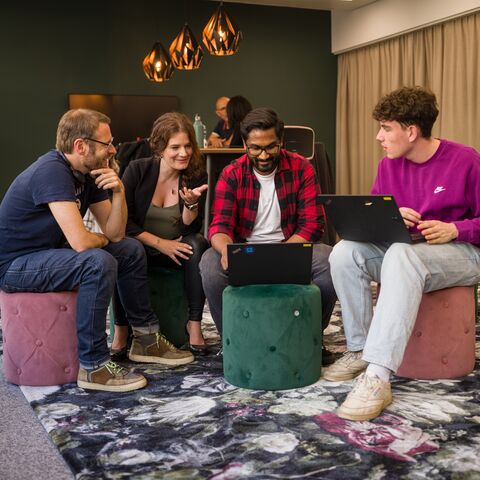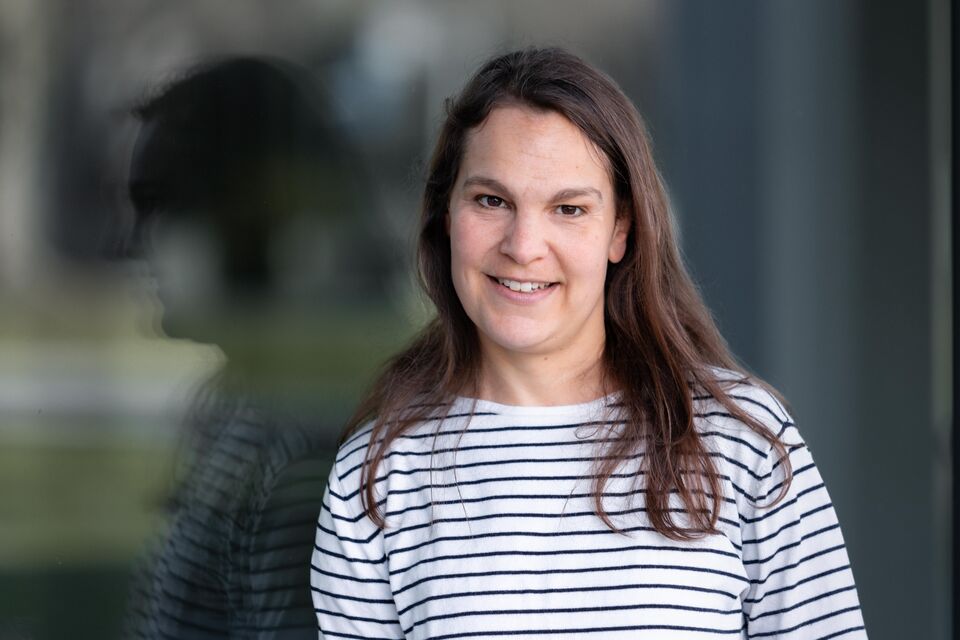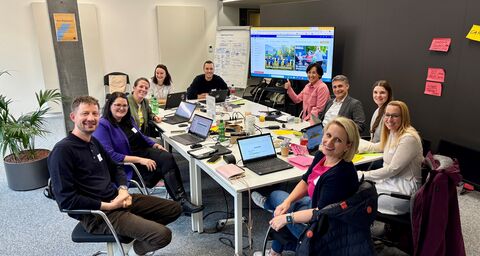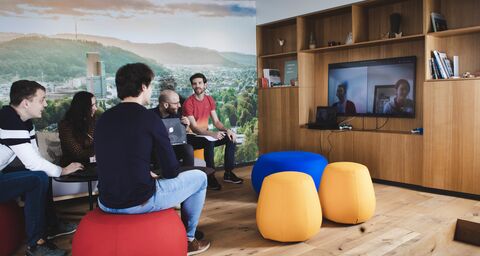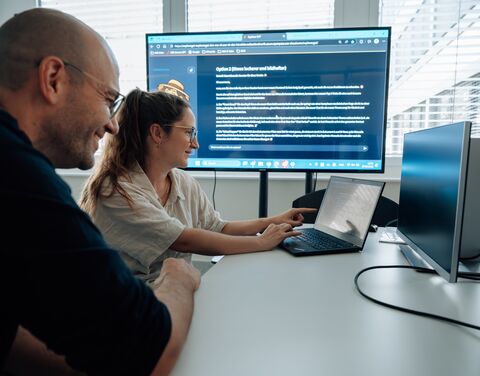
Working as a GenAI Engineer at AXA
Mathematics, computer science, natural sciences and technology – a profession traditionally dominated by men. But the picture is changing, as more and more women are discovering their fascination for so-called STEM professions. Nora Tombers is one of them.
Nora, what drives you in your day-to-day work?
I am motivated by the enthusiasm for new things and the opportunity to create real added value.
“Women and technology ...!” - how do you react when you hear something like that?
I don’t feel that my gender plays a role in my day-to-day work. I grew up with strong female role models and learned early on to go my own way. And that’s what matters. To be successful, you need first and foremost self-confidence.
“Going your own way – that’s what matters.”
What exactly is your key to success?
Not to be afraid of the unknown. I don’t mean to know everything – but I have the confidence that I can learn a lot and get used to new topics. All it takes is openness, curiosity and energy. Usually, you’re only qualified for a role afterwards: you know how to start a company after you’ve done it. And you only become capable parents in everyday life with children.
“Don’t be afraid of the unknown!”
You’ve already had several exciting jobs. Why did you get stuck in IT?
IT is far from being as dry and technical as many people imagine. On the contrary, engineering is actually a very creative job. At its core, it’s always about solving a problem – a process that fascinates me. It all starts with listening carefully and understanding the problem. This is followed by a careful analysis. Later, during the implementation, programming skills are of course also required. But for me, this is just the toolbox.
What does a GenAI Engineer do at AXA?
At AXA, for example, GenAI engineers build specific tools for claims handling, such as claims chat applications. The aim is to provide AXA employees with the best possible support in their work processes. Generative Artificial Intelligence (GenAI) is used for this purpose. Well-known examples of GenAI are large language models (LLMs) such as chat-GPT or Gemini.
How can companies attract more women to STEM careers?
We need to better communicate which skills we focus on besides classic programming. Women are often afraid that they’re not technically strong enough. Or they imagine that they would be programming code all day in a quiet room. If we get rid of the classic stereotype of the IT worker, the job will also become more attractive for women.
“If we get rid of the classic stereotype of an IT worker, the job will also become more attractive for women.”
What advice would you give women in male-dominated professions?
Don’t set yourself the goal of being like someone else – do your own thing: something that suits you and you enjoy. There will always be others who can do better, but that’s not the point. What we need is a variety of perspectives, because that is what genuinely innovates. This is clearly demonstrated by our annual AXA Hackathon: Diverse teams develop practical ideas. If you’re aware that your input is valuable, then it will also be perceived that way by the outside world.
“What we need is a variety of perspectives, because that is what genuinely innovates.”
The momentum in the field of GenAI is enormous at the moment. How do you stay up to date?
(Laughs) I’m afraid that’s impossible. But I am reassured by the thought that you will never know everything. I myself regularly read email newsletters, especially TLDR and The Batch. I also try to use generative artificial intelligence in a variety of ways in my daily life – for example for vacation planning or running analysis – and to constantly try out new things. And, of course, I talk to my colleagues.
What role does the team play for you?
Team spirit is crucial. We all play our part in the whole, but we are not lone fighters. Rather, we are constantly learning from each other. Our day-to-day work is made up of interfaces: reaching out to others and asking questions, working together and complementing each other – that’s fun and helps us progress.
“At AXA, I can use my strengths and develop them further.”
And why AXA in particular?
Three things spontaneously come to mind that I particularly appreciate: AXA is giving new technologies a chance. I can contribute my own strengths and develop them further. And customer value – the needs of those who use our tools – is always at the forefront.
If I’m eyeing up a STEM job, but am unsure: what advice would you give me?
Go for it! A big part of our job is mindset. Of course, basic programming skills are needed, but relevant soft skills are more important in application processes than the perfectly efficient code.



